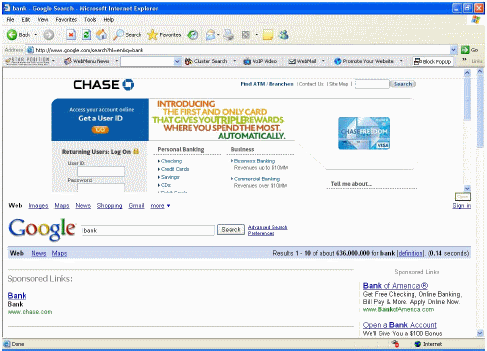"If your site is seen first on the search engines, you're the
one people will tend to contact. It's that simple."
Discover a better way to be seen on the major search engines.
A way that over 14,000 companies have already discovered.
Their sites are ALWAYS seen at the top of the major search
engines, WITHOUT the exorbitant pay per click charges.
With us, your site, and not a banner or link, is ALWAYS
seen first, with no pay per click hassle. What you see is
the placement we do for some of our clients ..
(Click on the image below to go to our site and see the
testimonials we have. All with phone numbers.)
We can provide you this same advantage. This Network
is based on proven search toolbar technology with over
29.7 million downloads. For those who have downloaded
the WebMenu search toolbar, these clients are seen 100%
of the time at the top of the major search engines !!
Our usual placement goes for six months, but if you register
with us between now and Friday, we'll also give you an
additional six months at no extra cost. We offer guarantees,
including a money back guarantee. We will also include our
Click2Call service at NO additional cost, if you order today.
I can be reached at my office, from 8:00 AM to 5:00 PM
Pacific time. Please feel free to call me.
Best regards,
Robert Sexton
Director of Business Development, StarPosition
Phone: 800.481.2979, ext 2001
Direct line: 949.215.0022
If you do not wish to receive future emails, click Remove. Or, reply via
postal mail to the following address:
Customer Service
16787 Beach Boulevard, #742
Huntington Beach, CA 92647
Please allow three business days to be unsubscribed via the above link,
or ten business days if you reply via postal mail.
